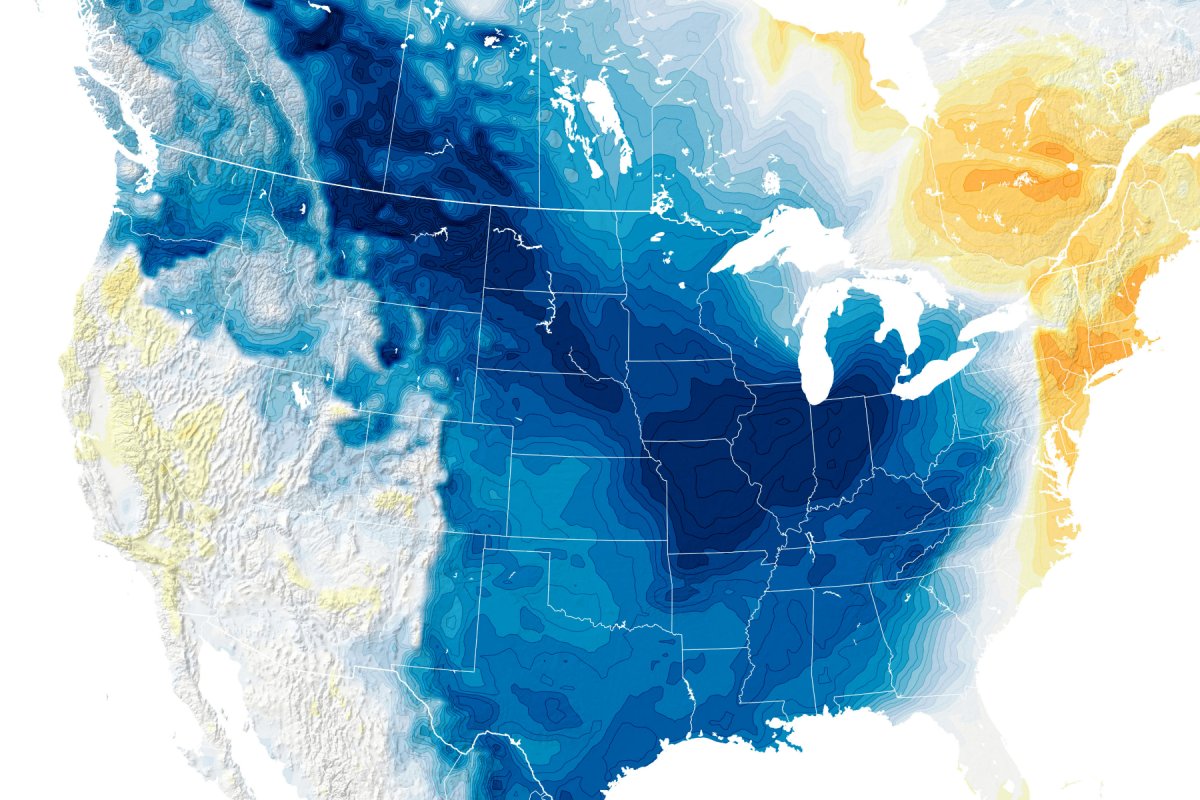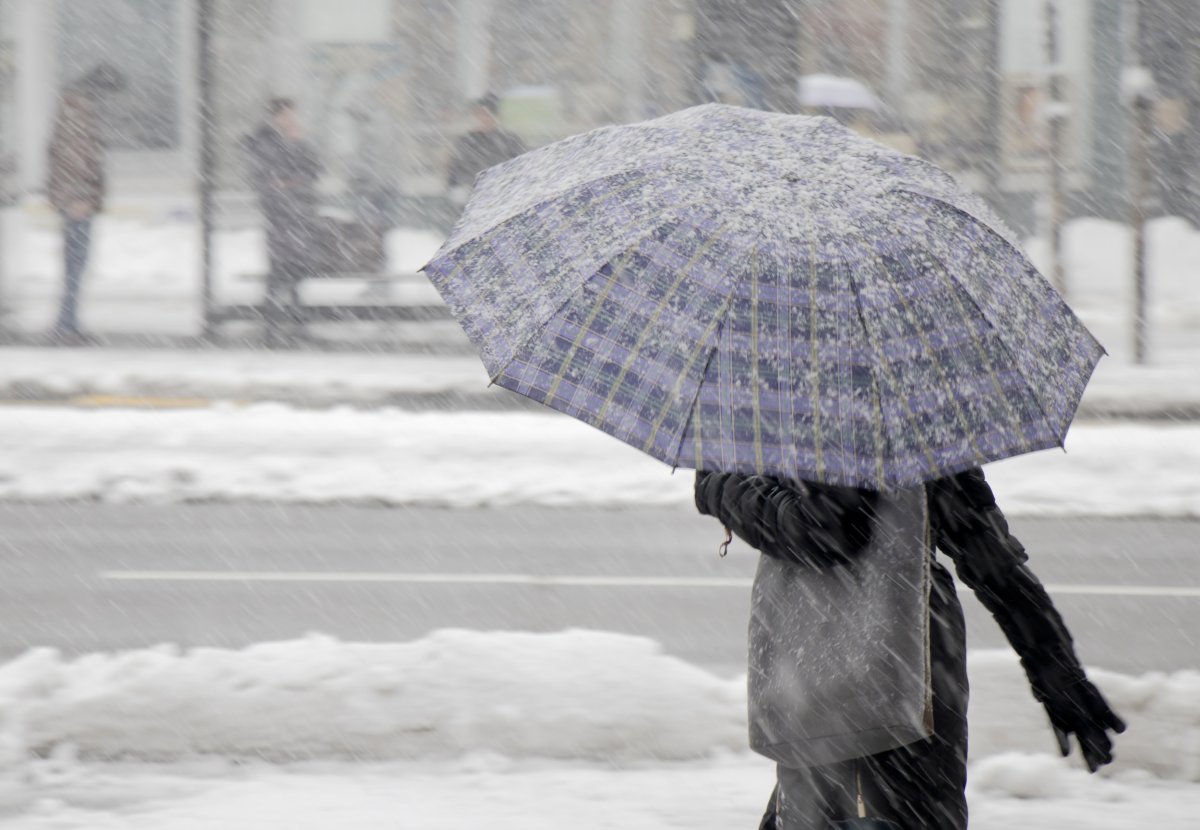Large sections of the U.S. will need to bundle up with lots of layers for warmth in the coming days, as an "Arctic blast" of freezing temperatures is heading south from Canada.
The NASA Earth Observatory's image of the day shows the frigid weather forecast across the country for December 23. Many states are colored nearly entirely in dark blue, indicating the temperatures there will be between 15 and 25 degrees Celsius (27-45 degrees Fahrenheit) lower than average for this time of year.
Winter storm Elliott is set to unleash freezing temperatures and blizzard conditions across much of the U.S. in the next few days, causing travel disruption just as millions of Americans are setting out for the holidays.
On December 22, the surge of cold weather is expected to move southwards from Canada, hitting Texas and the Midwest first, then subsequently moving northeast towards New England, Gary Partyka, an atmospheric scientist with the Global Modeling and Assimilation Office at NASA's Goddard Space Flight Center, explained in a statement.

These predictions are based on data from the NASA Goddard Earth Observing System (GEOS) global model, using mathematical equations to represent atmospheric interactions and weather patterns.
Blizzards are to be expected in the Midwest, Ohio Valley, and Great Lakes over the next few days, with powerful winds and multiple inches of snow falling.
The National Weather Service forecasts that throughout the week, several states will experience sub-zero temperatures. Montana is forecast to be at minus 38 degrees F on Thursday December 22.
"The lowest temperatures will be across Montana, Wyoming and North Dakota. Low temperatures in those states will be in the minus 30s, especially in Montana and Wyoming," AccuWeather Senior Meteorologist Thomas Kines previously told Newsweek. "There can be a few spots in Montana and Wyoming where temperatures fall below minus 40."

Chicago will be badly affected by the cold snap: the NWS forecasts that on Friday December 23, actual temperatures will fall to minus 6 degrees F, with wind chill temperatures as low as minus 34 degrees F, along with snow and blizzards. Between 2 and 4 inches of snow are expected on December 22. Wind gusts may exceed 50 mph.
Minneapolis and St. Paul will also suffer, especially during Thursday evening, with lows of around minus 8 degrees F forecast and wind chills of minus 32 F, as well as gusts as high as 30 mph.
Detroit is expected to experience lows of 10 degrees F on Friday, and wind chills of minus 11 F, with up to 2 inches of snow. Wind gusts may reach as high as 47 mph.
St. Louis is forecast to have wind chill values as low as minus 30 degrees F, with 1 to 3 inches of snowfall on Thursday.
Dallas is forecast to experience lows around 11 degrees F on Thursday night, with wind chill values between minus 4 and 2 F.
New York City will escape the worst of the blast, with temperatures around 24 F on Thursday, and some snow.
"To stay safe, maintain access to weather information and digest that information on a regular basis, as weather forecasts change with time," Esther Mullens, a professor of atmospheric science at the University of Florida, previously told Newsweek.
Do you have a tip on a science story that Newsweek should be covering? Do you have a question about the arctic blast? Let us know via science@newsweek.com.
Update 12/22/22, 9:40 a.m. EST: This article was updated to add a temperature conversion to Fahrenheit.
Uncommon Knowledge
Newsweek is committed to challenging conventional wisdom and finding connections in the search for common ground.
Newsweek is committed to challenging conventional wisdom and finding connections in the search for common ground.
About the writer
Jess Thomson is a Newsweek Science Reporter based in London UK. Her focus is reporting on science, technology and healthcare. ... Read more
To read how Newsweek uses AI as a newsroom tool, Click here.






